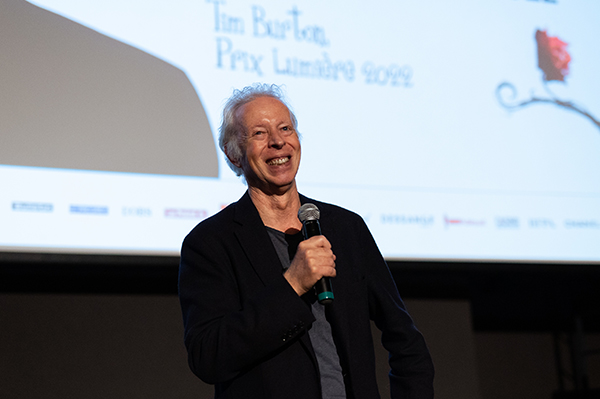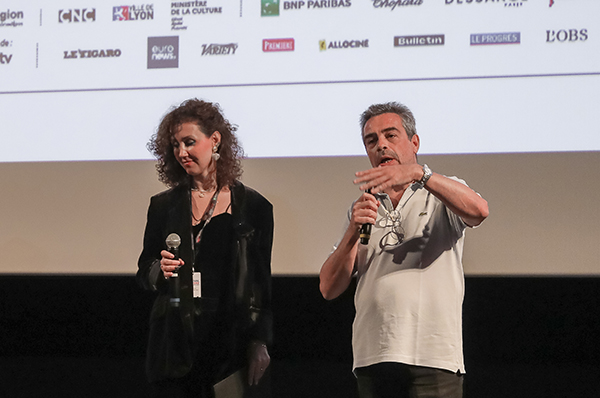Happening
at Lumière
PostED ON OCTOBER 19 2022
Gian Luca Farinelli, Director of the Cineteca di Bologne and Special Guest of the International Classic Film Market
"Basically, I love the pandemic! I am in favour of contagion, and in particular that of cinema, which is a highly contagious art! During the pandemic, we created our own little platform, keeping the idea of a film club with about twenty films offered every month. Our attempt was the most successful in Italy: two-thirds of our spectators were not from Bologna. We have since stopped the initiative because it takes time and money to think seriously about programming a platform. And the fight we cannot afford to lose is mainly that of movie theatres. It is a never-ending battle. The question is: how do you talk to different audiences? How can we make going to the cinema as important as going to mass, at least in Italy? We have to find the right time for each audience and think of places that make people want to make them their own. In short, we mustn't forget that we work above all for human beings!
Philippe Le Guay, filmmaker, presenting ‘Spirits of the Dead’ by Roger Vadim, Louis Malle, Federico Fellini
‘Spirits of the Dead’ is an adaptation of three short stories by Edgar Allan Poe. The first features Roger Vadim and Jane Fonda, the legendary couple of the era. The second, ‘William Wilson’, is by Louis Malle, starring Brigitte Bardot and Alain Delon in a double role. It’s interesting to see that Alain Delon's filmography contains many stories of doubles: ‘Mr. Klein’ or ‘La Piscine’ and ‘Purple Noon’, which always featured a sort of mimetic alter ego. The third is a Fellini masterpiece, in which Terence Stamp plays a sort of junkie cowboy between science fiction and mythology. For one cinema ticket, you get to see three movies!”

© Léa Rener
Joël Chapron, specialist in Eastern European cinema, introducing ‘The Five-Forty’ by André de Toth.
"André De Toth told a lot of fibs about his life. It is not known whether he was born in 1900, 1912 or 1913. He came from a family of intellectuals. His name was Endre von Toth. While studying law, he met Ferenc Molnar, a famous writer, at the New York café, the meeting place for intellectuals in Budapest in the 1930s. Molnar got him into a film studio where De Toth did all the professions. He made a good living, which was important because he spent a lot of money on polo and horses, and on his seven marriages and 19 children. In 1939, he directed ‘Wedding in Toprin’ in eight days. It was a success. He made a total of five Hungarian films, some of which tackled unusual subjects of the far-right Hungary of the time, such as feminism. When he encountered Goebbels in the studios, he refused to work there from then on, didn't finish the post-synchronisation of his film in progress, got into his car, threw the keys into the river after parking, and took the first train to the west and then the last boat to America where he began a career as a prolific and talented filmmaker."

© Sabine Perrin / JL Mège Photography

